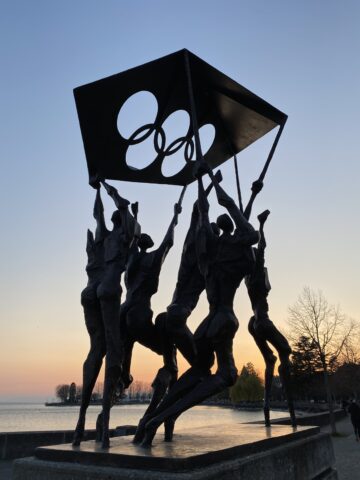Implicit consideration of requests and arguments raised by a party and violation of ne infra petita and the right to be heard
4A_198/2020, Judgment of 1 December 2020 A FC v. B FC, appeal against the CAS award CAS 2019/A/6187 & 6189
The dispute arose from a transfer agreement of a football player between two Egyptian Clubs (Club A and Club B), which included a sell-on fee as well as a penalty clause in case of a breach of contract. Following a decision rendered by the Players Status Committee and the Appeals Commission of the Egyptian Football Federation (EFA), Club A (the Appellant) appealed the decision to the CAS, requesting the withdrawal of the appeal brief (filed in parallel by B) for late filing and for lack of signature by B / its representative. After a letter confirming the admissibility of the appeal filed by B, the Panel dismissed its appeal, leading to a motion to set aside the CAS award before the SFT.

The SFT first considered that the letter sent by the CAS whereby the statement of appeal was filed in due time did not discuss the Panel’s jurisdiction and, as such, the Appellant could not have challenged such decision immediately before the SFT, to the extent that it did not challenge the composition of the arbitral tribunal or its jurisdiction.
The Appellant invoked a violation of the ne infra petita principle by the CAS Panel (for failing to rule on one of its requests) and of its right to be heard (by failing to examine one of its decisive arguments). More specifically, while the Panel considered that the appeal was filed in time, it allegedly failed to rule on its argument related to the lack of signature of the appeal brief. The SFT swiftly dismissed the ne infra petita argument to the extent that the contested award had rejected “all other or further submissions”. Moreover, by partially upholding the cross-appeal filed by Club B, the Panel implicitly dismissed the inadmissibility objection.
There is no violation of ne infra petita to the extent that the contested award rejected "all other or further submissions".
With respect to the alleged violation of its right to be heard, the Panel confirmed that the appeal brief complied with all the requirements of the CAS Code, therefore implicitly rejecting the inadmissibility plea raised by the Appellant. Interestingly, the SFT continued its analysis holding that the element allegedly omitted was not such as to affect the outcome of the dispute since the CAS Code does not include a provision requiring the appeal brief to be signed. Moreover, the SFT considered that the appeal brief was first transmitted by email sent by an employee of Club B and was therefore sufficiently identifiable. In any event, the CAS could not have declared such appeal brief inadmissible without first granting a grace period in line with relevant case law, in which case Club B would have remedied such procedural irregularity.
Note: the full Judgment is available in French at the website of the Swiss Federal Tribunal www.bger.ch. The English translations of important international arbitration decisions rendered by the Swiss Federal Tribunal (from French, German and Italian) are available on the website www.swissarbitrationdecisions.com , operated jointly by Dr. Despina Mavromati and Dr. Charles Poncet as a service to the international arbitration community.





